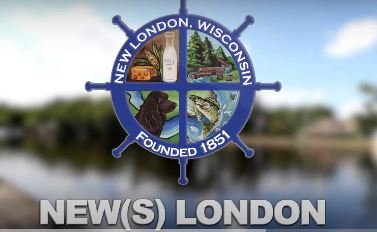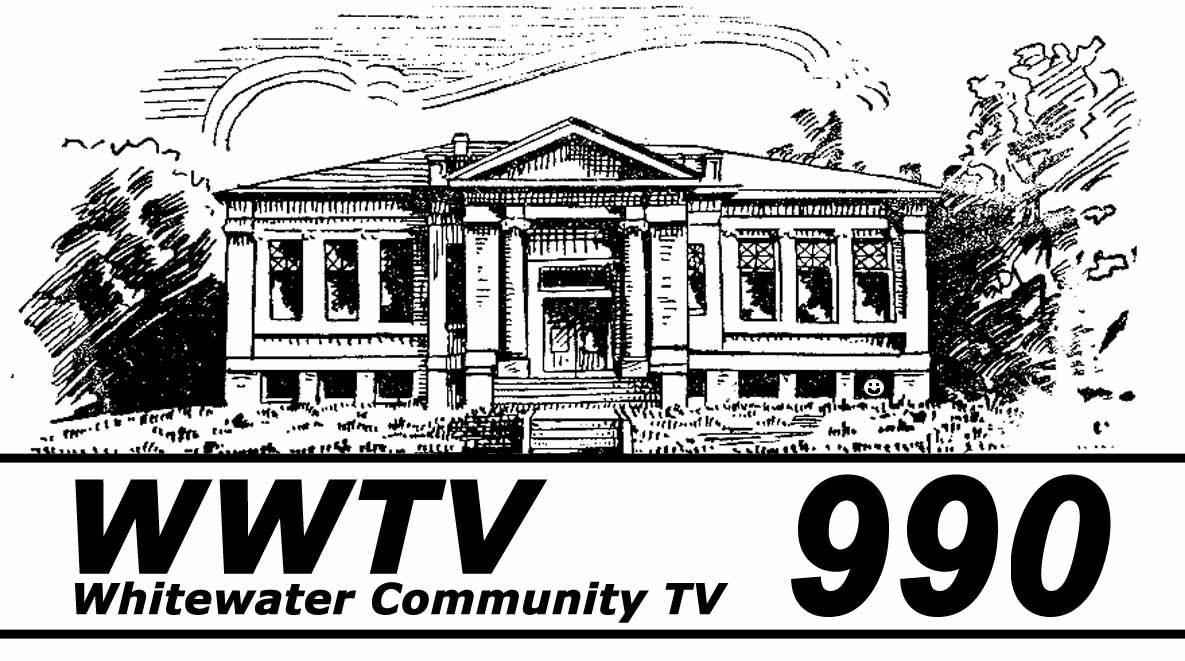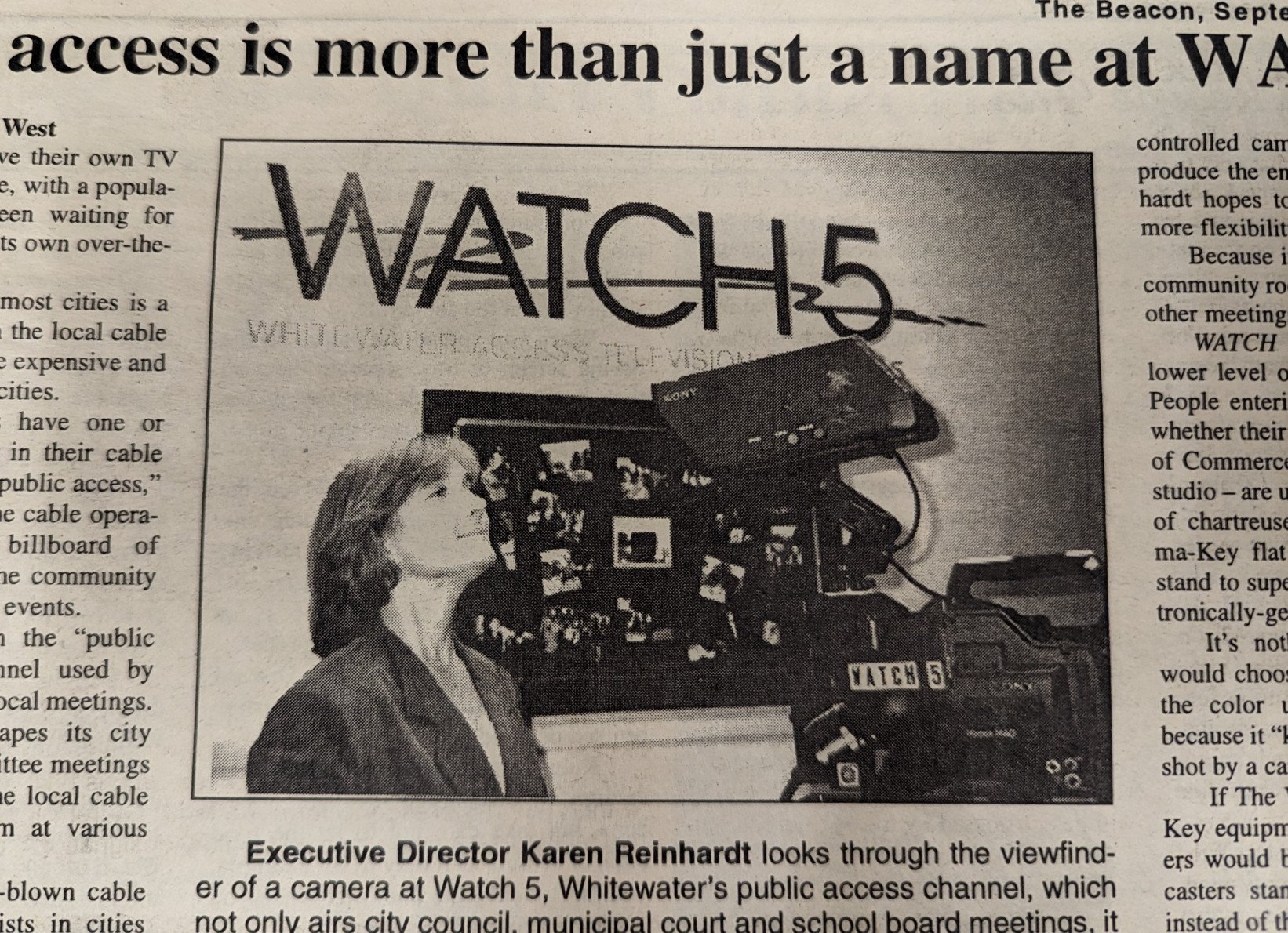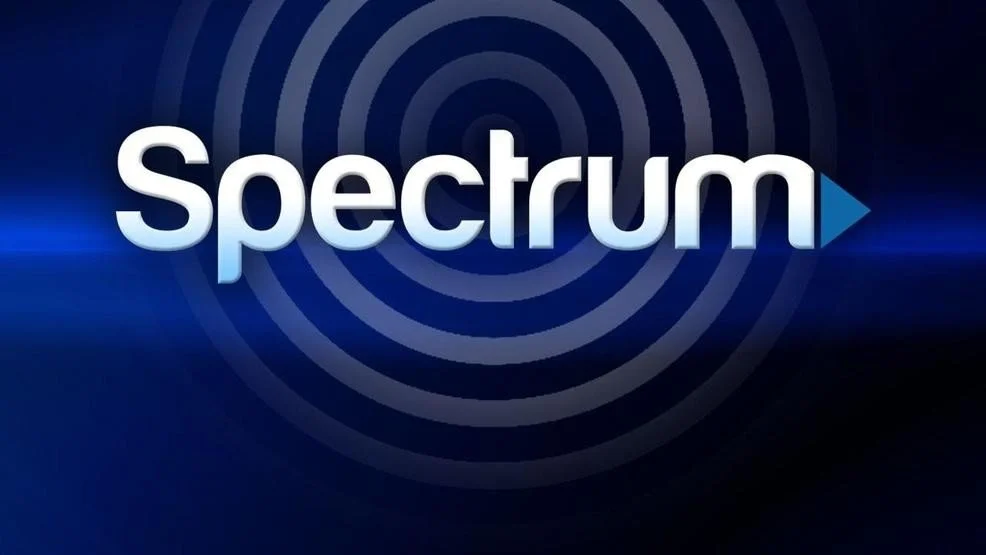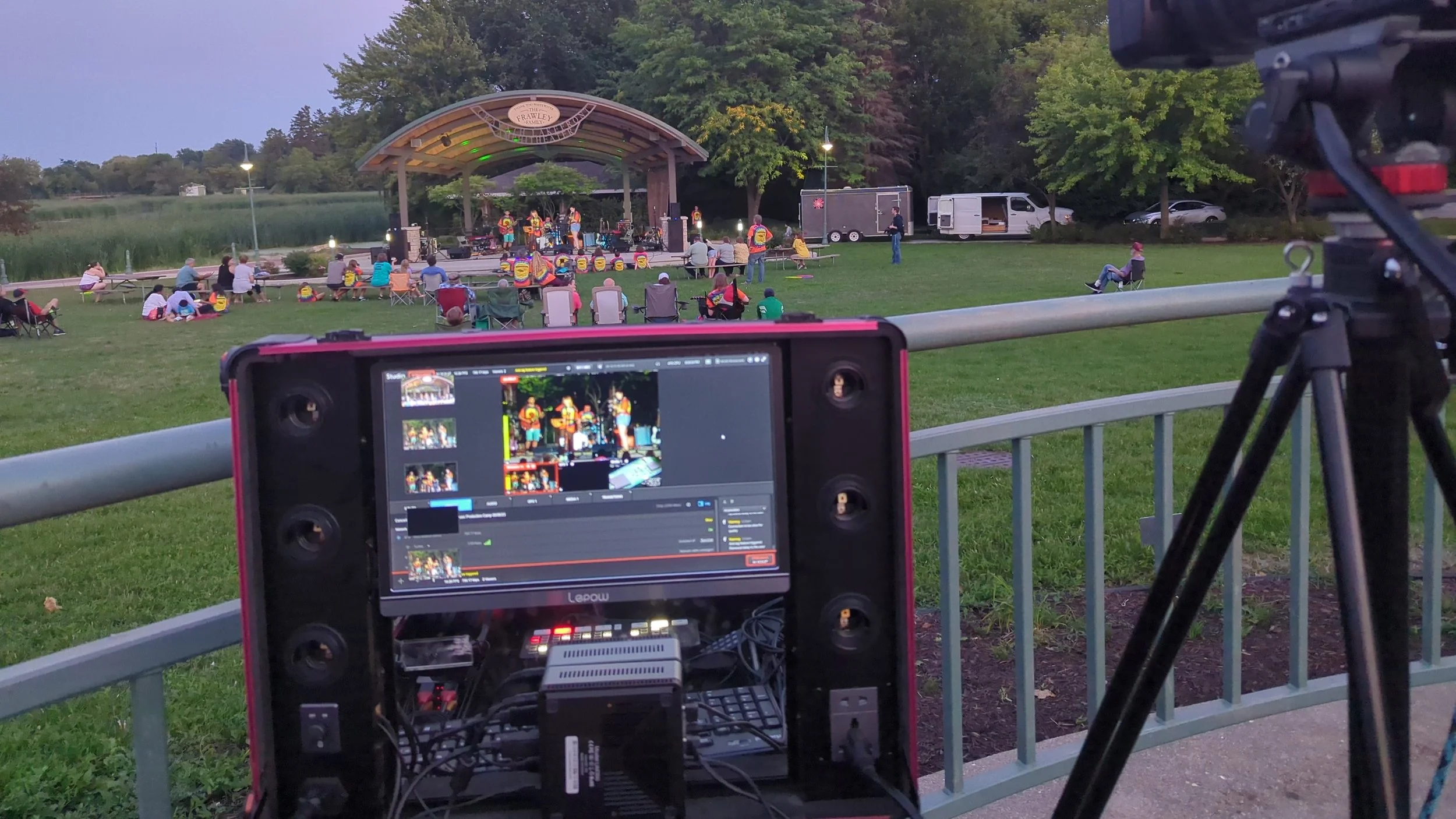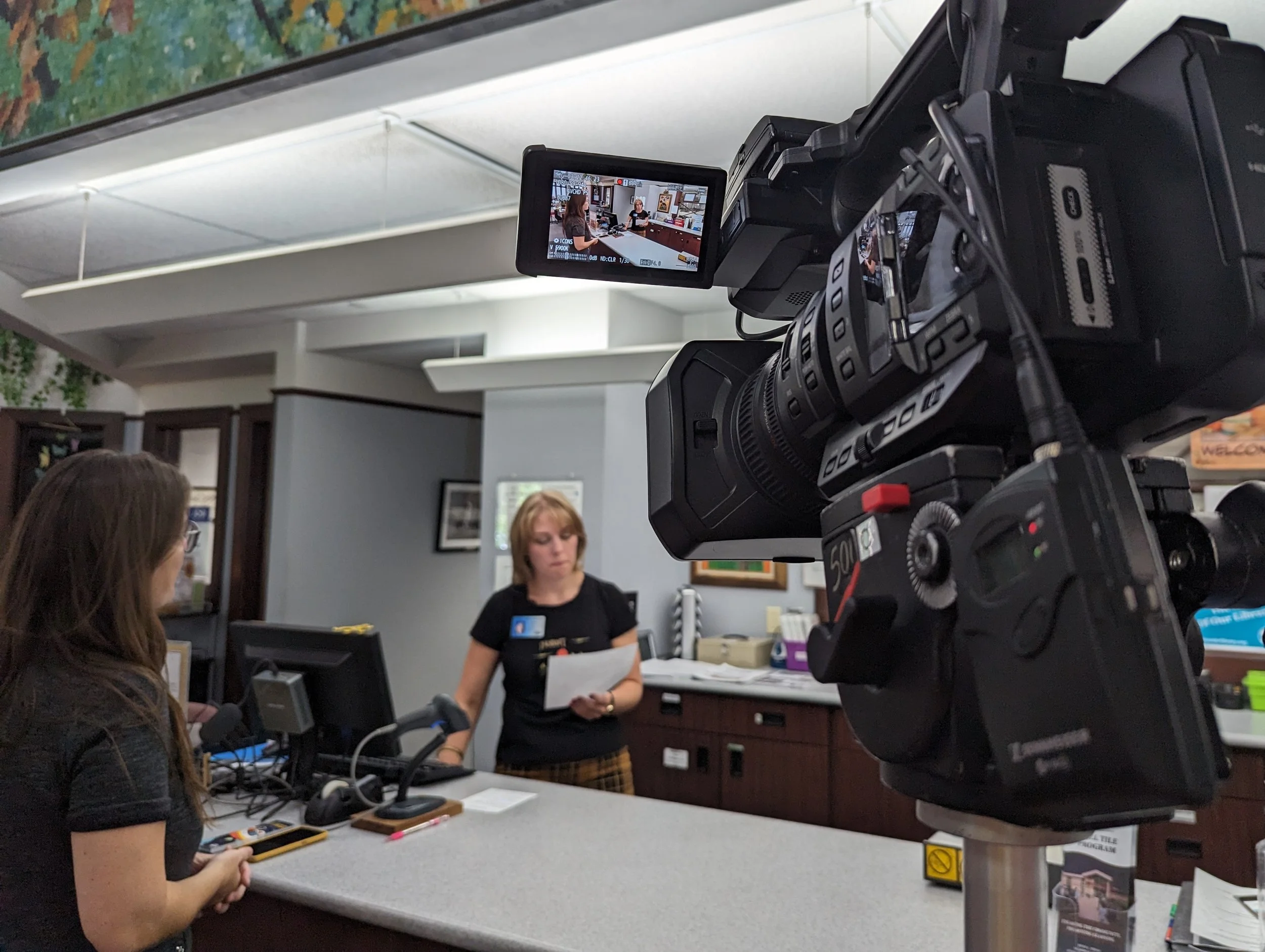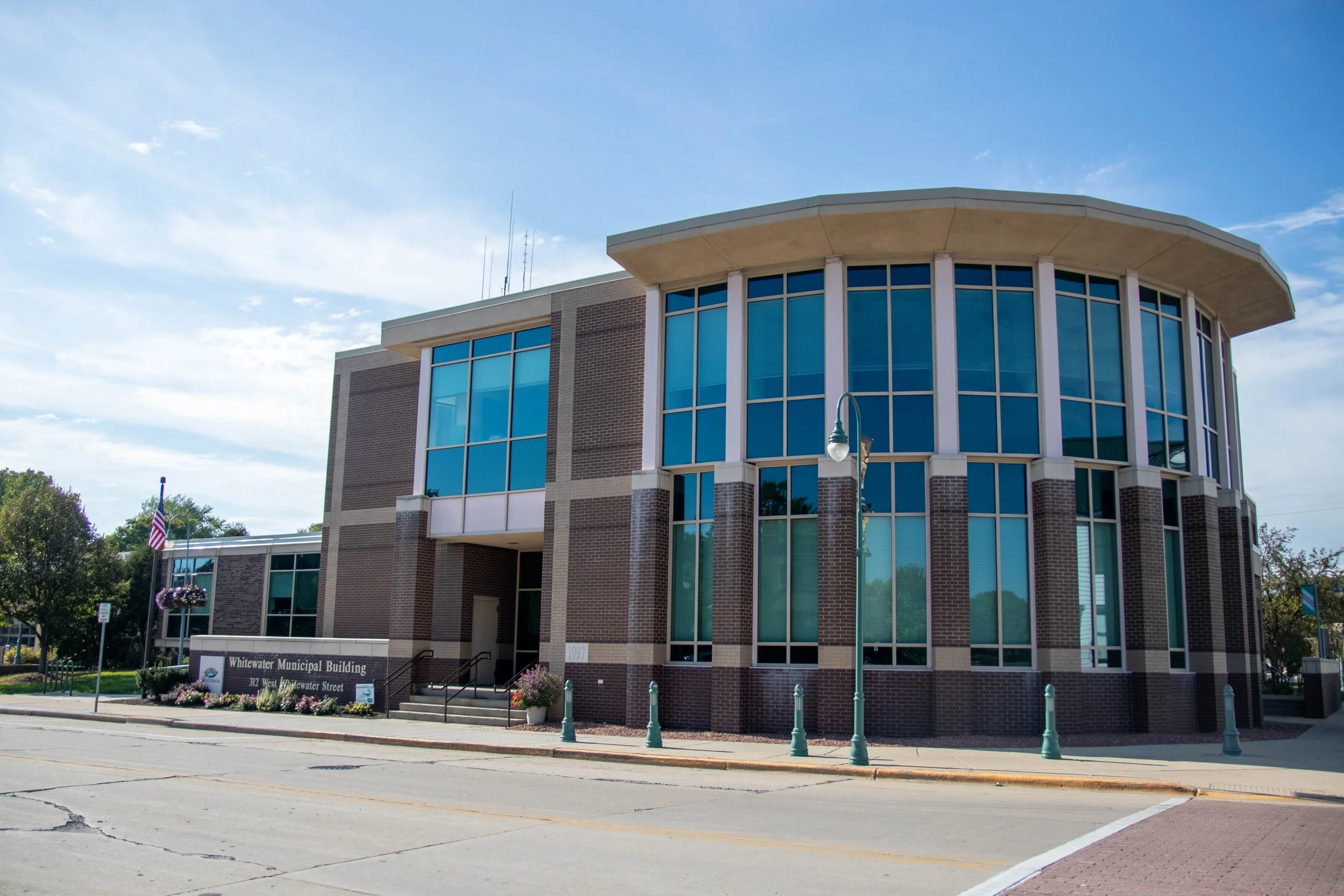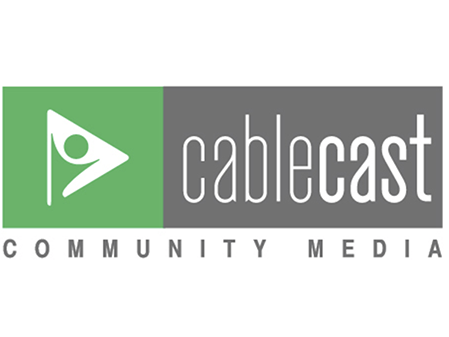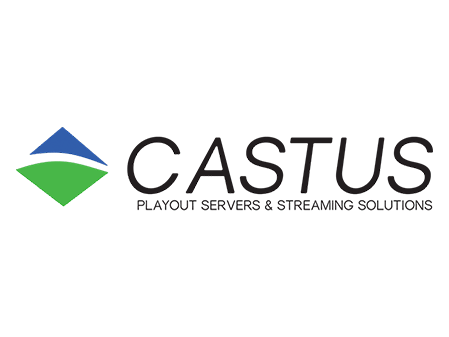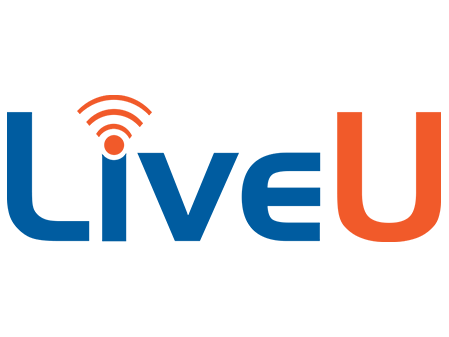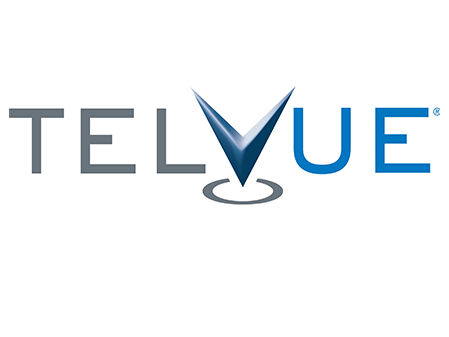Befitting the name of his city, New London City Administrator Chad Hoerth is all about the “new.”
At press time, Hoerth is in the process of hiring a new full-time Video and Marketing Producer to serve New London and its roughly 7,500 residents. That new producer will be able to take advantage of what Hoerth calls a “big new investment” in New London’s video production capabilities. Hoerth is also excited about new growth opportunities for the city – located near the Fox River Valley region just 17 miles from Appleton, 34 miles from Green Bay, and 35 miles from Oshkosh – arising from a current highway expansion project.
With all the new activities happening in and around New London and its video operations, it’s no wonder that Hoerth is focused on the future. But he also has a clear picture of the history of New London’s cable channel.
New London’s government access television station, Hoerth recalls, began in the 1980s as a means of “dissemination of community information and services and local programming and entertainment.” Hoerth, who joined the city in 2007, notes the station used to be operated by the city’s Parks and Recreation Department with a single full-time employee who reported to the Parks and Recreation Director who was responsible for the “overall operation of the station including equipment upgrades and maintenance and overseeing programming.” The Parks and Recreation Director reported to a Cable Commission that approved any purchase north of $1,000 and provided guidance in establishing policy and programming objectives.
Fast forward to 2024 and much has changed: The Video and Marketing Producer that Hoerth is hiring will report directly to the City Administrator, not the Parks Director. And when Act 42 went into effect in 2008, New London’s Cable Commission was disbanded.
But what hasn’t changed is the vision statement of the channel, which states the purpose of the station is to "strengthen the community’s awareness of the benefits and importance of the City of New London.”
There’s just one minor problem, however: New London’s cable channel, which the city’s Charter Spectrum subscribers should be able to find on channel 990 of their cable systems, has been off the air for a year.
When asked about the extended outage, Hoerth was understandably frustrated but optimistic that the issue would be resolved soon. In the meantime, Hoerth says the city has been very reliant on its YouTube page, which he says has only underscored his residents’ desire to know what is happening in their community, a need that an active cable channel can support.
“You can go on our YouTube page a couple of days after meetings have been posted and see the views our programming gets,” says Hoerth. “People watch this programming. People want to be educated.”
Despite the increase in YouTube views, Hoerth does acknowledge that an older generation that isn’t as skilled or interested in might be missing out. “I do hear from older people concerns as to why we are not broadcasting,” says Hoerth. It’s these concerns that are inspiring Hoerth to continue to work towards a solution with Charter Spectrum to get the channel running again.
Undoubtedly the new Video and Marketing Producer, who Hoerth hopes to have onboard sometime this spring, will assist with that effort. But Hoerth is also excited about the role the new staffer will play in marketing the city to potential visitors and future residents. “The cable channel and our social media pages are such great communication pieces to have at our disposal,” Hoerth says, adding that he’s excited about the new producer’s capacity to work with the city’s Economic Development team and the city’s Chamber of Commerce to produce pieces highlighting the city’s multiple strengths.
Chief among those strengths is a solid list of major employers that Hoerth says continue to invest in their local facilities and therefore provide stability for residents and the local economy. Those employers include Tyson Foods, packaging supplier Amcor (just those two alone employ over 1,500 people), as well as medical service provider ThedaCare, the New London School District, and St. Joseph Residence, the latter offering a range of rehabilitation services, skilled nursing, and assisted and independent living solutions for older adults.
Hoerth is also excited about the growth he anticipates happening thanks to the expansion of Wisconsin Highway 15 to a four-lane highway. Highway 15 is a busy commuter route between New London and the Fox Cities area and Hoerth believes that the expansion will enhance local economic development and boost the livability factor for New London.
As New London’s profile increases, the city’s access channel is poised to increase with it, thanks to recent major upgrades in technology that run the gamut from an overhaul of the AV system in the city’s council chambers (including new PTZ cameras and a total overall of the audio equipment) to new portable recording equipment. New London has also recently invested in a new Cablecast playout automation system.
This investment in the cable station reflects Hoerth’s belief in the importance of transparency in local government. Since COVID, that commitment to transparency has been made stronger by a large increase in the number of committee meetings that New London covers live. Residents interested in local government can now enjoy full coverage of the city’s Public Works, Parks and Recreation, Finance, Economic Development, and Plan Commission meetings, in addition to city council meetings.
The New London channel also regularly covers city and community events and happenings, content that Hoerth expects to increase with the hiring of the new Video and Marketing Producer. One of the events that Hoerth is particularly fond of is the New London’s annual Irish Fest celebration. The event features Wisconsin’s largest Saint Patrick’s Day Parade, a music festival featuring food, beverages, and vendors, and more. Each year the legendary week of Irish festivities begins when devious local Shamrock Club leprechauns change the town’s name to ‘New Dublin.” Hoerth says the city’s prime spots for viewing the annual sturgeon spawning also draws a ton of interest each spring.
While the city of New London maintains a consistently active presence on Facebook and Instagram, Hoerth sees video as a key part of the city’s communications strategy and a tool that stands to get stronger with the city’s new Video and Marketing Producer. “Sometimes people say they don’t know what’s going on,” says Hoerth. “Obviously having our meetings available for livestreaming or playback, we’re being transparent. There is so much information overload today. A well-produced video can grab someone’s attention and get the information across in a way that nothing else can.”
For a sampling of New London-produced videos, go to their YouTube channel. To report concerns about the current availability of New London’s cable channel, please use this form.
City administrator Chad Hoerth interviewed on New London Access
New London Access Covers A Wide Array of Local Happenings
New London Becomes New Dublin every March; its Irish Fest features a parade annually covered by New London Access


